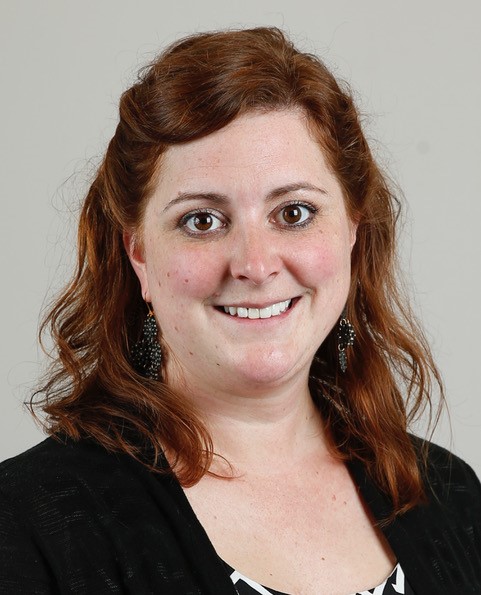
Melanie Young serves as the Chair of the School of Arts and Humanities at Laramie County Community College in Wyoming and also teaches English. She has led an overhaul of general education at two Wyoming community colleges but is most proud of her work at Laramie County Community College, ensuring that all students who complete the general education block will also complete the Interstate Passport.
The state of Wyoming has only one four-year university so the ability of students at the state’s community colleges to transfer seamlessly – with all academic credits accepted and applied – is critical. The work on redesigning LCCC’s general education program took three years, and it was built around the Passport, in part because less than 10 percent of students achieved the Passport through general education. One challenge faced by faculty and advisors was to better inform students about the Passport and why it is valuable. Before the GE curriculum redesign, “They didn’t understand it or see why they needed it.”
Before developing procedure, LCCC created a philosophy statement about general education that would ensure connections between GE courses and what students were learning, as well as connections to their discipline. LCCC conducted research on what employers were seeking from college graduates and what makes students successful in the workplace – and in life. Nine different teams were assembled for the redesign work, made up of individuals from all over the campus, not just faculty. People who work outside academia, in particular, were able to offer a valuable perspective, and asked questions that really made the difference in how LCCC communicated the philosophy. The diversity of the group made it successful.
As part of the philosophy statement, the teams identified four practices that all GE courses must encompass and which students must demonstrate:
General Education at LCCC:
1. Practices of Exploration, Research, and Problem Solving
2. Practices of Creativity and Innovation
3. Practices of Empathy and Integrity
4. Practices of Communication and Collaboration
The first year orientation at LCCC includes an explanation of these practices and the GE philosophy to illustrate the connections, coherency and value of the GE curriculum.
The redesigned GE program now has a process in place for creating, approving and maintaining courses. Every GE course had to “reapply” to general education. The number of GE classes went from over 150 to 53, and the GE curriculum is not discipline specific. (See link to the General Education Characteristics Checklist below.) Course offerings are reevaluated once a year. Importantly, this process encompasses operational aspects of the college, i.e., facilities, enrollment, and advising as well as the educational piece. And every student who completes GE will earn a Passport.
Melanie was struck by the tremendous growth and understanding she saw among the people involved in the redesign conversations. Everyone began to think about the institution as a whole. The overarching question became, “Does this serve everybody?” The previous process only considered if a class met educational goals.
The process of revamping the GE program also emphasized the value of general education for all students, and the value of the GE program in general. Melanie thinks we need our best faculty teaching GE to fulfill “our promise to students that they’re going to have a great educational experience from Day One.”
The LCCC General Education Philosophy Statement is available here.
The LCCC General Education Characteristics Checklist is available here.